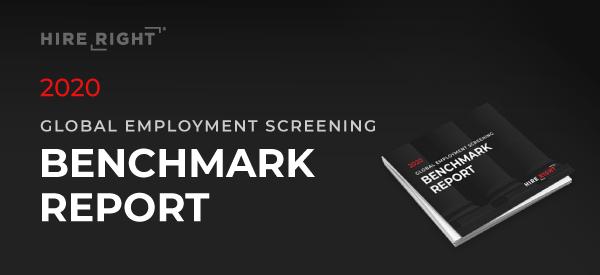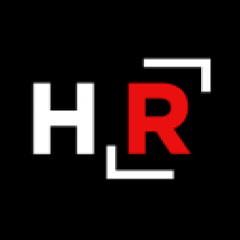HireRight 2020 Global Benchmark Report: Key Takeaways
Here is a summary of four of the key global findings from HireRight's 2020 Global Benchmark Report.

HireRight’s 2020 Global Benchmark Report is based on the survey responses of nearly 1,700 people professionals worldwide who answered questions about their businesses, background screening habits, and talent acquisition challenges. Here is a summary of some of the key findings:
The most common background checks vary by region
The appetite for employment background screening varies widely around the world, as does the rigour of its application. Whilst the U.S. unquestionably has the most mature market, employment background screening, otherwise known as vetting or employment verification, continues to develop outside of North America, as global employers are increasingly looking for ways to reduce their employment risk.
Globally, the most performed checks are criminal, identity, employment, and education checks. However, these figures are quite different in each region, with businesses in the EMEA and APAC regions being the most likely to conduct previous employment and education checks, and respondents from the U.S. more likely to conduct criminal record checks.
Smaller businesses are less likely to check their candidates’ education history
In addition to varying by location, the size of a business also seems to be a contributing factor to their screening behaviours, with smaller businesses often not vetting their new employees. Larger enterprises (those with over 500 employees) are more likely to conduct nearly all types of background checks. Most notably, just 39% of respondents from global small/medium-sized businesses (SMBs) conduct education verifications, compared to 68% of those from global enterprises who said the same.

This difference between the adoption and robustness of background screening in different-sized businesses is surprising given the additional vulnerability that SMBs may have. While larger businesses may be able to absorb the cost of a poor hire, for smaller businesses, an under-qualified candidate who may have embellished their background with fake or misleading credentials and experience could have a large negative impact to their business.
Nearly a third of companies aren’t screening their extended workforce
When setting up your company’s employment screening programme, don’t forget about your non-employee workers.
Many companies of all sizes across the world rely on an extended workforce to support their permanent staff. However, despite these workers often having the same access to sensitive company data as regular employees, businesses are not always screening their full workforce and may be leaving themselves vulnerable to risk.
With 82% of all respondents saying that they engage with non-employee workers, including contractors, temporary workers, interns, and volunteers, it’s surprising that around the world 32% of respondents said they don’t screen any non-employee workers. Those from EMEA are the most likely to screen their temporary workers, with 58% of respondents saying that they do so, compared to 50% of APAC respondents and 46% of respondents from the U.S. and Canada.

Candidate discrepancies are still found during routine background checks
Employers should want to know the truth about their candidates, especially after hearing that the 2020 survey respondents said that inconsistencies on CVs/resumes and application forms are still rife.
Most companies that conduct background checks are still finding candidates that are misrepresenting themselves when applying for jobs – so what is going unseen by the companies who don’t screen their staff?
In EMEA, 66% of respondents said that they had found discrepancies in their candidate’s previous employment details, and 64% said that they had uncovered issues with their education history as a result of background screening. However, discrepancies could be a result of various issues – not all are deliberate deceptions. Incorrect details such as dates of employment, job title, tenure, or company name also come into the picture. It is important for employers to discuss discrepancies with their candidates to determine if the errors were genuine mistakes.
For more insights into global background screening trends, regional compliance, and the future of screening technology, you can download the full HireRight 2020 Global Benchmark Report.
Release Date: September 22, 2020

HireRight
HireRight is a leading provider of on-demand employment background checks, drug and health screening, and electronic Form I-9 and E-Verify solutions that help employers automate, manage and control background screening and related programs.